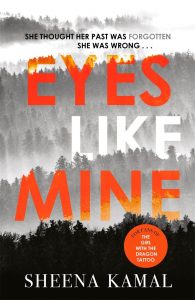 Eyes Like Mine by Sheena Kamal
Eyes Like Mine by Sheena Kamal
Published by Bonnier Zaffre
Tell Me a Lie by C.J. Carver
Published by Bonnier Zaffre
The Intrusions by Stav Sherez
Published by Faber & Faber
The Chalk Pit by Elly Griffiths
Published by Quercus UK/Houghton Mifflin Harcourt US
Spook Street by Mick Herron
Published by John Murray UK/Soho Press US
Family may the bulwark that protects some of us from the howling chaos beyond, but it can also generate its own terrors, as this month’s crop of splendid crime novels shows.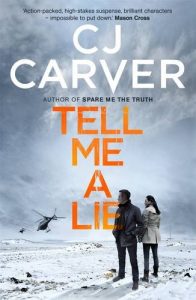
Sheena Kamal’s first novel, Eyes Like Mine, carries an inspiring message. Her narrator, Norah, is homeless, alcoholic, isolated, 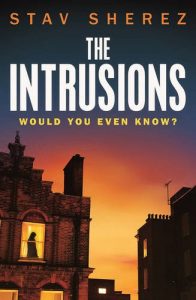 with terrible suffering in her past, and yet her mantra is ‘I’m not a victim: I’m a survivor.’ Her professional life involves her in the search for lost or kidnapped people, and this novel deals with her hunt for her own teenage daughter, who was adopted at birth and has now gone missing. The chase involves Norah in physical and emotional danger as she has to revisit the worst of her many past traumas, when she was raped, mutilated and left for dead. She is as different as possible from the current crop of fashionable weepies, who wallow in their victimhood and long for someone else to save or justify them, and her search shines light into some very dark places and
with terrible suffering in her past, and yet her mantra is ‘I’m not a victim: I’m a survivor.’ Her professional life involves her in the search for lost or kidnapped people, and this novel deals with her hunt for her own teenage daughter, who was adopted at birth and has now gone missing. The chase involves Norah in physical and emotional danger as she has to revisit the worst of her many past traumas, when she was raped, mutilated and left for dead. She is as different as possible from the current crop of fashionable weepies, who wallow in their victimhood and long for someone else to save or justify them, and her search shines light into some very dark places and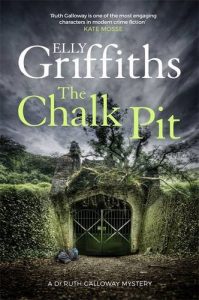 forgotten lives. This is a most impressive – and moving – novel.
forgotten lives. This is a most impressive – and moving – novel.
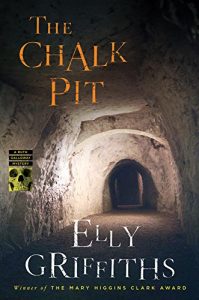 Caroline Carver also deals with twisted family secrets in Tell Me a Lie and, like Kamal, plunges her characters into sub-zero temperatures and the worst of human violence. Her appealing sleuth is once again Dan Forrester, whose memory still has dangerous gaps, which make him more vulnerable than anyone in his position should be. His official search for the truth about an appalling family killing spree takes him to Russia, back into his own past, and face to face with the toughest of the local hoods. This is one of the fastest-moving, most entertaining thrillers I have read for a long time. So fast is it that only when I had finished the last page did I begin to wonder about the coincidences and the unlikeliness of some of the plot lines.
Caroline Carver also deals with twisted family secrets in Tell Me a Lie and, like Kamal, plunges her characters into sub-zero temperatures and the worst of human violence. Her appealing sleuth is once again Dan Forrester, whose memory still has dangerous gaps, which make him more vulnerable than anyone in his position should be. His official search for the truth about an appalling family killing spree takes him to Russia, back into his own past, and face to face with the toughest of the local hoods. This is one of the fastest-moving, most entertaining thrillers I have read for a long time. So fast is it that only when I had finished the last page did I begin to wonder about the coincidences and the unlikeliness of some of the plot lines.
Stav Sherez takes his readers into the quieter but no less terrifying dangers that lurk in the 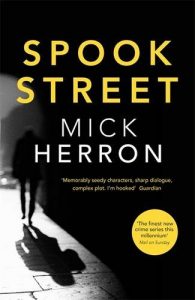 homeliest of the computers we all take for granted. In The Intrusions his troubled cops, DS Geneva Miller and DI Jack Carrigan, have to fight internal battles with various bean counters when they should be out hunting a possible serial killer, an unidentified man who sends messages claiming vulnerable young women, who then disappear. I am not a fan of serial-killer novels because the plots are necessarily so similar to each other, with clues to lost young women leading towards the killer’s lair but not in time to save the pretty woman officer who falls into his clutches. The Intrusions, however, has a lot more going for it than this simple chase. There is Carrigan’s distress over his mother’s dementia and his late wife’s infidelity; there is the relationship between him and Geneva Miller; but, above all, there is Sherez’s terrifying insight into the world of the hackers who install RAT software in their targets’ computers and smartphones. As one of the police experts explains it: ‘These are teenagers. Cowards, geeks and nerds. This is their preferred battleground. What we mainly see is extortion, or sextortion… The Ratter gets into your system, pokes around until he finds jpegs or videos…. ‘The Ratter then threatens to expose your intimate photographs to parents, partners or employers if you don’t pay him off. ‘Imagine your reputation is staked on this. You do what you have to do. Unfortunately, like blackmail, it never stops. They take the money, shut up for a while, but eventually they contact the person again or sell the slaves on.’
homeliest of the computers we all take for granted. In The Intrusions his troubled cops, DS Geneva Miller and DI Jack Carrigan, have to fight internal battles with various bean counters when they should be out hunting a possible serial killer, an unidentified man who sends messages claiming vulnerable young women, who then disappear. I am not a fan of serial-killer novels because the plots are necessarily so similar to each other, with clues to lost young women leading towards the killer’s lair but not in time to save the pretty woman officer who falls into his clutches. The Intrusions, however, has a lot more going for it than this simple chase. There is Carrigan’s distress over his mother’s dementia and his late wife’s infidelity; there is the relationship between him and Geneva Miller; but, above all, there is Sherez’s terrifying insight into the world of the hackers who install RAT software in their targets’ computers and smartphones. As one of the police experts explains it: ‘These are teenagers. Cowards, geeks and nerds. This is their preferred battleground. What we mainly see is extortion, or sextortion… The Ratter gets into your system, pokes around until he finds jpegs or videos…. ‘The Ratter then threatens to expose your intimate photographs to parents, partners or employers if you don’t pay him off. ‘Imagine your reputation is staked on this. You do what you have to do. Unfortunately, like blackmail, it never stops. They take the money, shut up for a while, but eventually they contact the person again or sell the slaves on.’
The intruders’ predations affect far more people than a single serial killer, but there is more 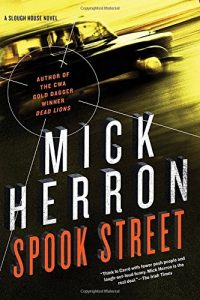 here than either kind of criminal. What makes Stav Sherez’s work so satisfying is his exploration of all kinds of relationships – with their yearning, broken dreams, agonizing discoveries and inevitable endings.
here than either kind of criminal. What makes Stav Sherez’s work so satisfying is his exploration of all kinds of relationships – with their yearning, broken dreams, agonizing discoveries and inevitable endings.
After darkness comes light. Reading one of Elly Griffiths’s Ruth Galloway novels is like pulling the softest duvet around you. She doesn’t shrink from the realities of the modern world in any way, and her characters’ crimes are as convincing as anyone’s, but there is so much warmth and so much good sense and humanity in the way Ruth manages her life and her cases that the atmosphere Griffiths creates is remarkably optimistic. In The Chalk Pit, she deals with homelessness, making the point Sheena Kamal also stresses that the homeless become invisible to those lucky enough to have avoided their plight. Street-sleepers aren’t only ignored by most passers-by; they are also prey to all kinds of exploitation and cruelty, as Griffiths shows here. She offers many pleasures, as well as the appealing Ruth, not least of which is the Norfolk land- and seascape, rendered in economical but vivid prose.
Even more pleasure is to be found in the wild world of Mick Herron’s Slough House series of spy novels. The denizens of this depressing outpost of MI5 are all officers who have blundered in their careers and they have been sent here to be bored into submission by the dreariest of administrative tasks, under the louche management of Jackson Lamb. As in each of the first three novels in the series, Spook Street sees them becoming involved in a live operation against all official policy. Much violence ensues.
As in this month’s other novels, family drives the action. David Cartwright, the Old Bastard, onetime star of the intelligence service, is descending into the grim world of dementia. He doesn’t always recognize his grandson, River, one of the current Slough House officers; he keeps a gun in the house; he’s sure that he’s under surveillance but he isn’t going to go quietly. Untangling the strands of David Cartwright’s memory and current paranoia is a dangerous task and people start getting killed. Spook Street is darker than earlier instalments of the series, but no less funny.
Mick Herron has an enviable talent for seeing the ridiculous in familiar ways of thinking and interacting, and his acute perception of human nature gives real depth to his fiction. His novels deserve at least two readings: the first, for the plot, the jokes and the characters; the second, for his descriptions of place, minds, feelings – and politics. His sidelong comments provoke many smiles, for example: ‘And there’d been other retirements from Westminster…..to make way for younger guns; to give elbow room to the distaff side, as one outgoing notable put it, his vocabulary indicating how firmly his finger was held to the pulse of contemporary life.’
